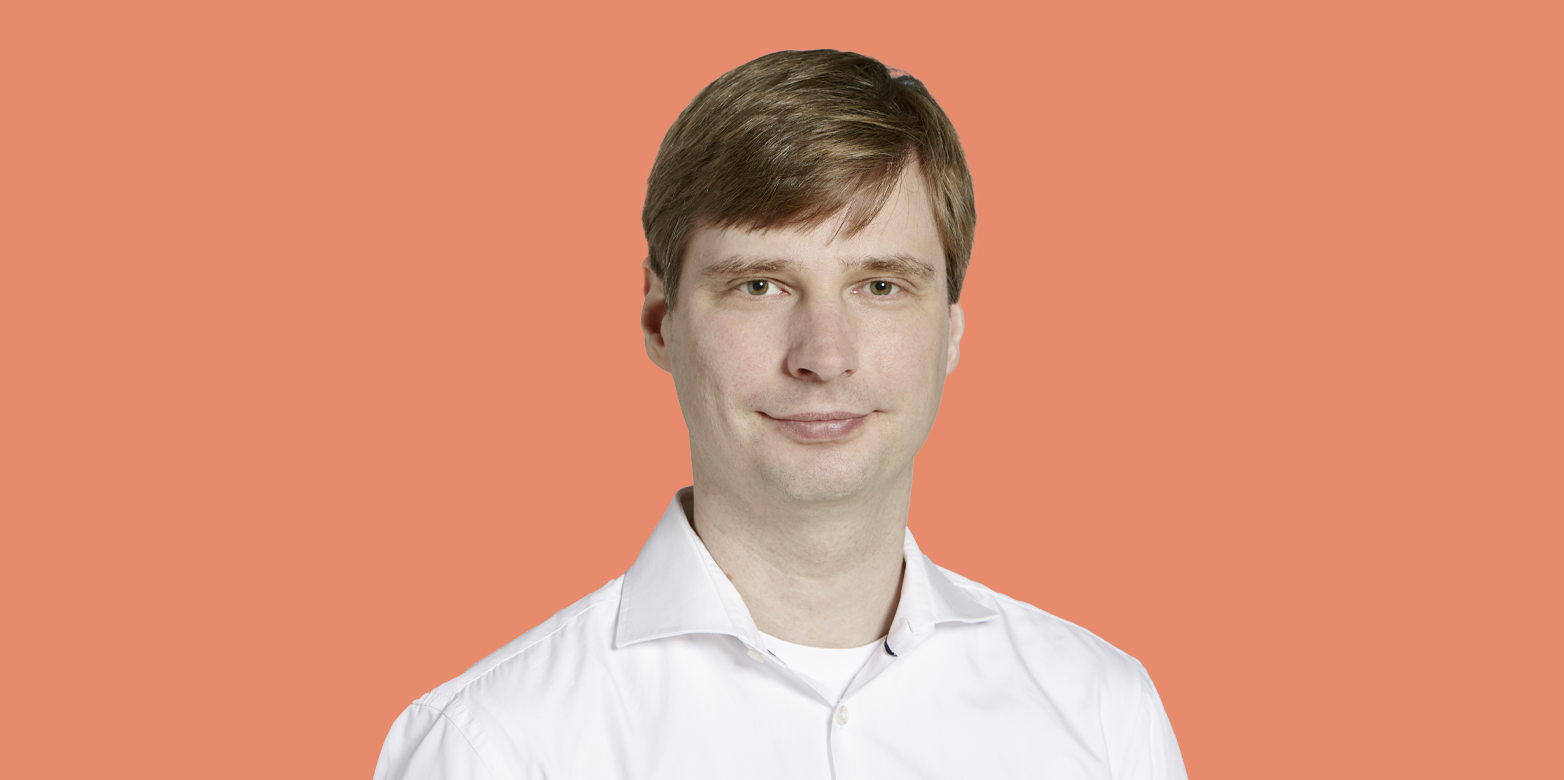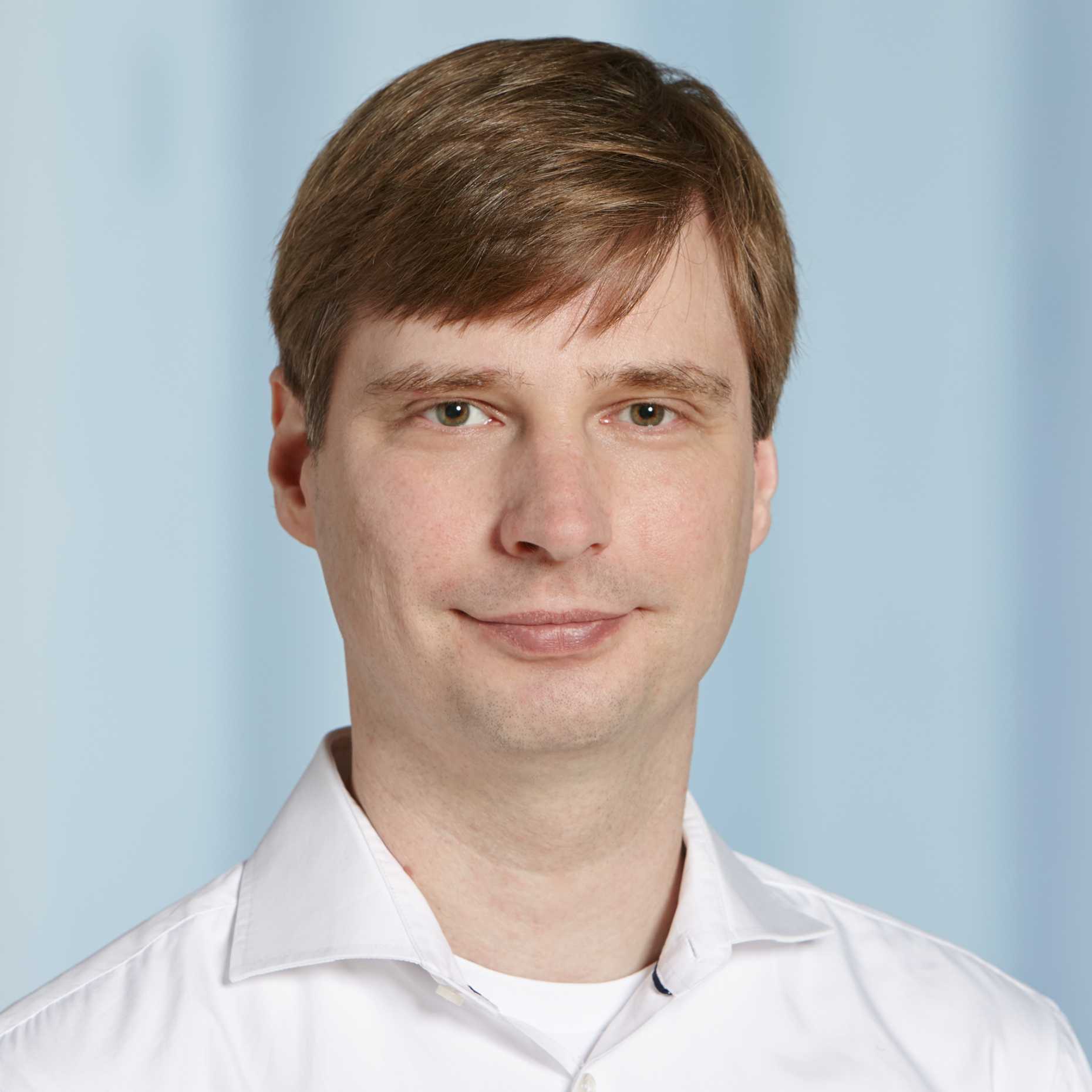“Luck always plays a role in a research career”
In this series of interviews, we talk to three people who decided to pursue an academic career after studying computer science and are now working as professors. In the first part, Dennis Hofheinz explains why he chose this path and describes the hurdles he had to overcome.

This interview is part of a three-part series about people who decided to pursue an academic career after studying computer science and are now working as professors.
Part 1: "Luck always plays a role in a research career" (Professor Dennis Hofheinz)
Part 2: "If you survive this, then nothing will stop you" (Professor Niao He)
Part 3: "I value the freedom of being able to listen to my innate curiosity" (Professor Ana Klimovic)
What aspects of your work as a professor in the field of cryptography do you like best?
Dennis Hofheinz: My favourite part is standing in front of the blackboard with others and solving problems together. But I also enjoy tackling a puzzle on my own. When I’m faced with an open question, I want to find out whether it can be solved. For example, if two people are stranded on an island and both want the last coconut, they might have to flip a coin to reach an agreement. Unfortunately, neither person has a coin in their pocket. Is it possible for them to come to an agreement about who gets the coconut just by talking? I find it fascinating to look for a solution to such puzzles, even if at first glance there are no practical applications for them. The reward for me is that I gain new insights. It's exciting to then publish my findings in scientific papers. That way I can see how others build on my ideas and possibly turn them into practical solutions.
When did you first become interested in computer science?
My father had a VIC-20 chess computer, which I quickly took to as a child. On this device, you could not only move chess pieces back and forth but also write programs. This computer was not as complex as today’s systems, so it was very accessible to me. From then on, my interest in computers grew steadily. After elementary school, I had computer science as an optional subject. We learned a lot in that class about programs and how they worked. Later, I studied computer science at university. Even after I graduated, I continued to study it because I still enjoy and am fascinated by it today.
What made you decide to stay in academia after your studies?
I had many encounters with people who had a concrete goal in mind, whereas I didn’t have a clear plan. To be honest, I lacked self-confidence and didn’t dare to plan that far into the future. However, I was always ready to take on new challenges when the opportunity presented itself. I also thought to myself: as long as they let me, I’ll keep doing what I enjoy.
The first time I had to make a conscious decision was when I already had a permanent position as a professor in Karlsruhe and decided to move to ETH. I had to apply for the position and talk to my partner about it. Before that, I was always made aware of suitable vacancies, such as my junior professorship in Karlsruhe or the postdoc position in Amsterdam, and I seized these opportunities. I am very grateful for the good fortune that the right positions became available at the right time. Luck always plays a role in a research career, and I really appreciate the fact that it worked out for me, and am sometimes amazed at it myself.

“Some great people have helped me develop both personally and professionally. I have modelled my own approach to research on theirs.”Professor Dennis Hofheinz
You said that you were referred to job offers. Were there any mentors who supported you on this academic path?
Some great people have helped me develop both personally and professionally. I have modelled my own approach to research on theirs. The people I worked with directly in Karlsruhe were the most influential. I was also able to learn a lot from Ronald Cramer during my time as a postdoc in his research group. Along the way, I got to know other researchers from the community, including Ueli Maurer and later Kenny Paterson, who taught me a lot and whom I looked up to. I consider myself very lucky that both of them are my colleagues today.
Was that also the decisive reason why you came to ETH?
Yes, I decided to move from Karlsruhe to ETH Zurich mainly because of the people. It’s not that I was unhappy in Karlsruhe. I had a permanent position as a professor there and it was a great environment. However, there are even more world-class researchers in my field at ETH. Besides, I was forty at the time. I thought that I could go on like this for another 25 years in Karlsruhe, but I didn’t want to regret it later. So I seized the opportunity to try something new and applied for the job in Zurich.
Are there any challenges that you have had to overcome in your research career?
Yes, the challenges certainly include the first big lecture courses that I taught independently. I taught an introductory course on algorithms in Karlsruhe with 600-700 students in the Audimax. During the first lesson, the lecture hall was so full that there were even people standing at the back of the room. It was a challenge at first to overcome my nervousness. However, I found that communicating with the students helped me. It’s crucial to understand how students think and how you need to communicate with them. It’s not just the factual transfer of content that is crucial, but also the interpersonal factors. And it takes time to acquire these skills. Every new lecturer has to go through this when starting out.
Last year, the computer science students voted you one of their favourite lecturers, which demonstrates that you have managed to overcome this hurdle. What does good teaching mean to you?
For me, good teaching is primarily measured by how much knowledge and understanding students acquire throughout their studies. It’s not just about mastering technical skills, but also about understanding how the different topics fit into a larger research context. In terms of the individual courses, I think it’s essential for a good course to encourage interaction and be open to students’ questions. It’s great when students ask questions, participating actively in the lessons. I wish there were even more questions and interactions in my courses and am constantly working to make that happen. I don’t want to give a 90-minute monologue. The dialogue, brainstorming together, and thinking about alternative approaches is what I enjoy most about teaching. As a lecturer, it’s great when teaching also makes you think.
What advice would you give to doctoral students and postdocs who want to pursue an academic career?
I think the most important thing is to choose a direction that you enjoy. You should be honest with yourself. If you choose a specialisation or the academic path just for the money, the title, or the fame, there are certainly other, easier options.
Secondly, it is crucial to get in touch with the right people and find out whether the research group is a good fit for you. It can be helpful to talk to other doctoral students or postdocs from the group in advance and ask them questions about their daily routine or the group dynamics, for example. This will help you make a decision.
How do you manage to balance your private and professional lives?
I try to complete administrative tasks from 8 a.m. to 5 p.m. As head of my research group, I want to set a good example, so I try to avoid sending emails to my team at weekends. However, I am constantly dealing with research problems, which makes it harder for me to switch off. I tend to sit at the weekend and think about whether I should read a book, watch a movie, or pursue some other hobby, but then I end up deciding to ponder a research question. Nevertheless, I make sure that I can relax and recharge my batteries at the weekend. That’s when I go hiking or to the movies with my partner, for example. Playing table tennis was also a major focus in my youth. I’d like to take that up again.
What are your current professional goals?
I want to continue doing good research, and I have some research problems that I would like to solve in the near future. These are problems that have been on my mind for some time; for example, the security of cryptographic methods against very powerful attackers (who use a lot of resources or quantum computing, for example). I also want to successfully master my tasks as Director of Studies over the next two years. I took on this role in January and have been learning a lot every day since then. Slowly but surely, I am gaining an overview. In two years, we will have to look back together to see how successful I have been in my work as Director of Studies.
Dennis Hofheinz’s research focuses on theoretical cryptography and his interests include public-key encryption and digital signatures. He completed his studies in computer science in Karlsruhe and then worked as a postdoc at the Centrum Wiskunde & Informatica in Amsterdam. He then moved to the Karlsruhe Institute of Technology, where he was employed as a junior professor. Professor Dennis Hofheinz has headed the Foundations of Cryptography Group at the Department of Computer Science at ETH Zurich since 2020. In January 2024, he took over as Director of Studies for the department.